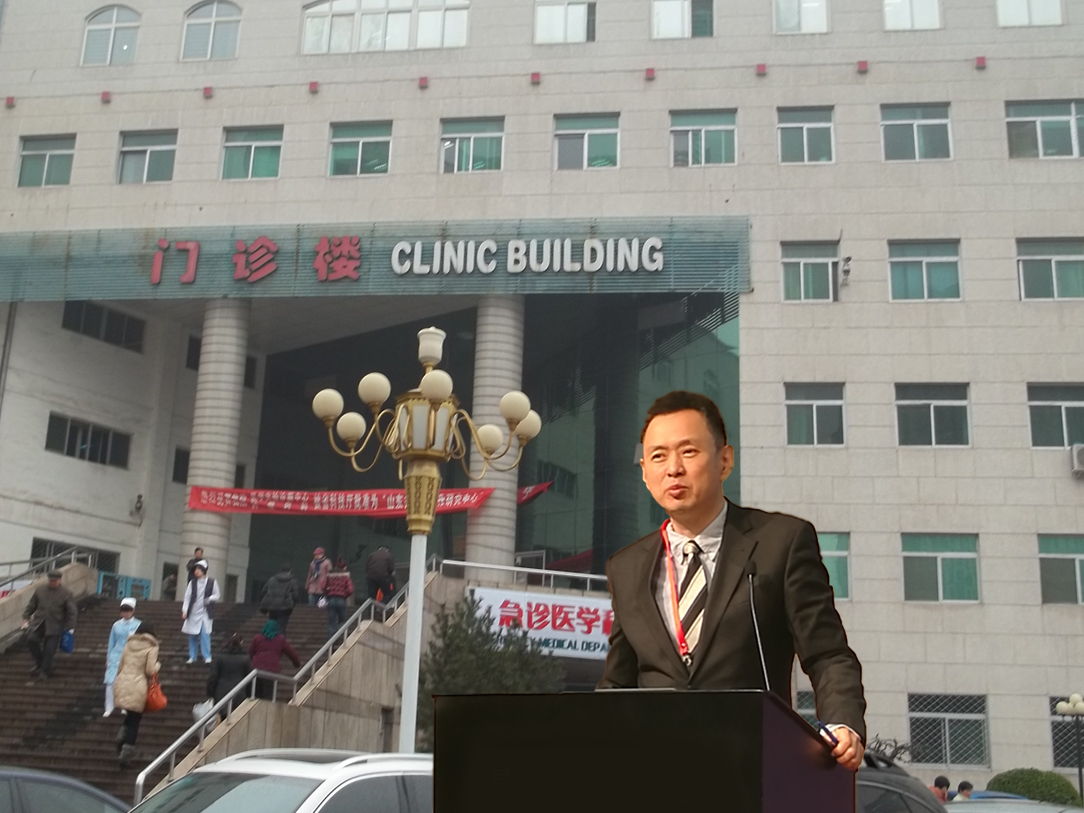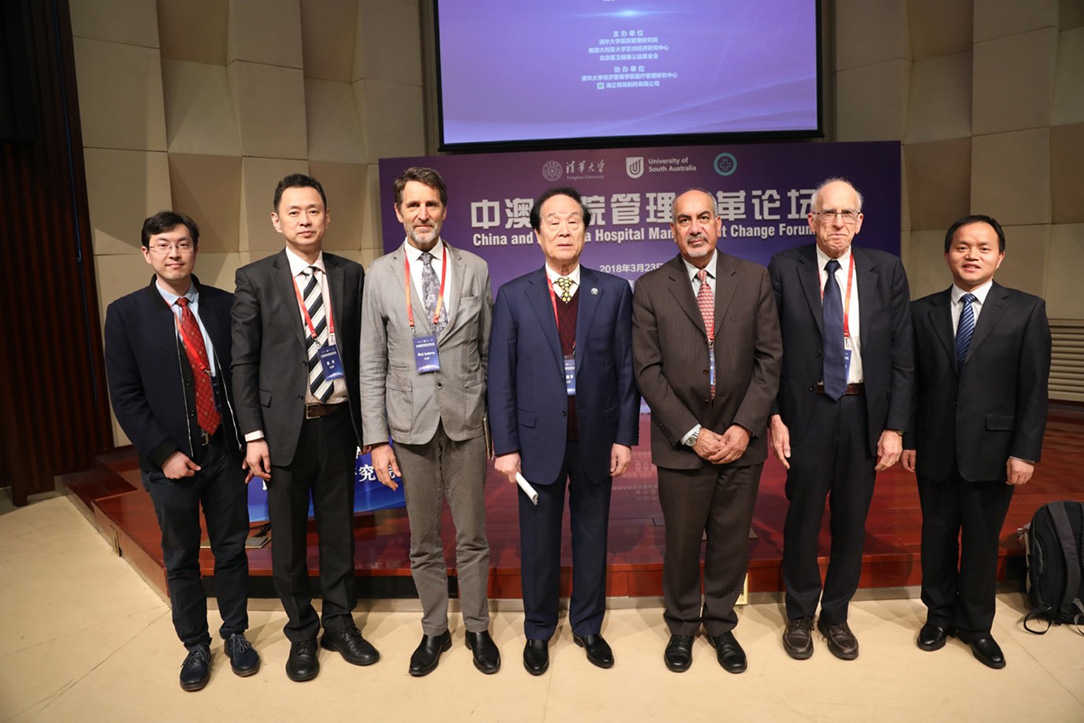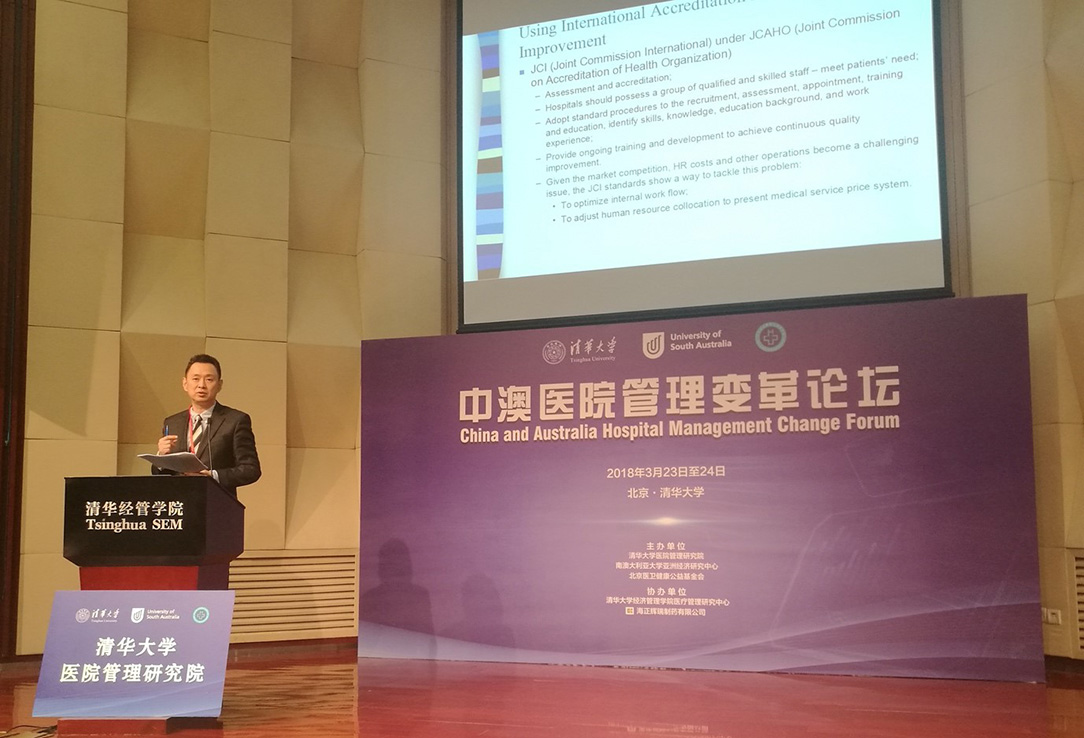01 May 2020

Dr Tian Gao
Director, Jinan Central Hospital
Vice Chairman of Quality, Safety, Health and Environment (QSHE), Specialized Committee of Chinese Research Hospital Association
Vice Chairman of Balanced Scorecard Specialized Committee of China Federation for Hospital Quality Management
Doctor of Philosophy (PhD) in Business
Dr Tian Gao has spent his entire three-decade spanning career in the healthcare industry, working in various departments at the Jinan Central Hospital in China’s Shangdong Province. Yet, the disruption and chaos the COVID-19 outbreak has spread throughout the world has been unlike anything he has seen before.
Currently, as a senior member of the hospital and one that has held roles in the past such as Director of the Blood Purification Center, Director of the Planning and Finance Department, Director of the Performance Management Department, Dr Gao was poised to play a vital role in curbing the spread of the virus in his department.
In order to respond to the epidemic, Jinan Central Hospital – the largest hospital owned by the Jinan Municipal Government with more than 2000 beds – established the Anti-Epidemic Headquarters, which comprised of hospital leaders, relevant functional department leaders with experts in infectious diseases, intensive medicine, and respiratory medicine.
“It has been very difficult for the hospital at work during these past few months,” Dr Gao says. “We ended our public holiday early on January 25 and returned to work immediately.”
“Jinan Central Hospital was part of the first batch of designated hospitals for the treatment of COVID-19 patients, so all the work quickly turned to epidemic prevention.”
This whole new department of the hospital became the centre of the battle against COVID-19 in the area – dispatching the anti-epidemic work daily, organising video learning, training all hospital staff on the latest diagnostic guidelines and protection requirements, and sorting through the work dispatches from the Jinan Municipal Government anti-epidemic headquarters every day.
Once how contagious and potentially deadly the virus was understood to be, the hospital’s workload and efficiency it prided itself on was abandoned. Safety became the number one priority.
Certain clinical departments were closed down and the admission of patients in most other departments were controlled as well. To avoid infections originating in the hospital, all other patient admissions, except for emergency patients and those requiring maintenance treatment, were restricted.
“In the early stages of the epidemic, our medical personnel faced a great deal of pressure as the diagnosis and transmission of COVID-19 patients was at a stage of continuous recognition.”

“However, it strengthened the management of our fever clinics, forced us to set up isolation wards, and from the end of January we began to undertake the task of nucleic acid detection of COVID-19.”
“As a result, the hospital's performance pay plan was also temporarily adjusted. It is now fully tilted to the frontline medical staff who are at the highest risk of epidemic protection.”
Dr Tian Gao completed his PhD at UniSA in 2012 and continues to draw from his time in Australia. His learnings in this period have kept him in good stead in the face of such crises and the current COVID-19 pandemic.
“It should be said that through my study in UniSA, my overall ability to learn, research and work has been systematically improved. So that when I now encounter problems, I am more willing to evaluate on the whole and seek systematic solutions,” he says.
“These teachings made me firm in the early stages of the epidemic. With the limited and cluttered information analysis at that time, I was able to strengthen my confidence in overcoming the epidemic and quickly overcome the panic, actively seeking countermeasures in my work. This included quickly formulating a designated epidemic work performance plan for the hospital as well.”
Jinan City as a whole implemented control over its communities by just allowing community residents to venture in and out, while at the same time measuring all temperatures and those with fevers were sent to the hospital immediately.
The City established such effective control measures, that as of early April, all patients diagnosed with COVID-19 in the area have been discharged.
While these past few months have been a trying time for both China and Dr Tian Gao’s contingent in Jinan, the country is slowly emerging from mandated lockdowns and are finally beginning to see the light at the end of the tunnel.
“In Jinan, although people entering and leaving the community are being tested for temperature, entry and exit controls have begun to loosen,” Dr Gao says.
“Due to the impact of the epidemic, people are still maintaining good protective habits, such as washing hands frequently and wearing masks in public places. But the daily life of Jinan citizens has basically returned to normal, and restaurants, shopping malls, parks and other public places have resumed business.”
With COVID-19 under control in Jinan since late January, as part of requirements from the Shandong Provincial Government, the Jinan Central Hospital has even sent five separate batches of 17 doctors and nurses to work in COVID-19 patient treatment designated hospitals in China’s hardest hit province, Hubei.
Now with even the Chinese COVID-19 epicentre –Wuhan in Hubei – beginning to open back up, the epidemic resistant measures and the effectiveness in China is providing hope for harder hit countries still in the midst of their outbreak and lockdowns.

“China has implemented these measures, so the epidemic has been quickly and effectively controlled. In some other countries, such as South Korea, similar measures have been adopted. The Italian epidemic has also started to get under control,” he says.
“Viruses have no borders and are not treated differently based on race. Control of the epidemic needs cooperation, including domestic and international cooperation, and resources of the whole society.”
With much of the world still battling the virus and UniSA alumni in more than 134 countries feeling the grave effects of both the health and economic damage, few corners of the globe will not be touched by the devastating COVID-19 fallout.
While efforts in Australia are proving hopeful and seem to be effectively ‘flattening the curve’, the tough lockdown measures are becoming increasingly frustrating for some. However, Dr Gao encourages such parts of the world to remain vigilant and not give up just yet.
“Up to now, people's understanding of COVID-19 is still in constant progress, and its infectivity and harm are beyond people's previous understanding.”
“You need to still take effective measures to conduct comprehensive screening for suspected patients, track all contacts according to the epidemiology, and isolate them.”
“Stop the gathering activities of people in public places and wear masks to protect themselves and prevent infecting others. Those who do not want to wear masks and observe isolation measures should understand that personal freedom should not jeopardise the safety of others. Give up such freedom in time to protect yourself and help others.”
“With the joint efforts of the whole society, the epidemic situation in other countries in the world will eventually be effectively controlled.”
“Epidemic control needs global and social cooperation.”



